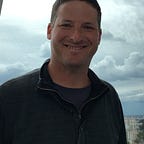Choosing not to play ball in the time of COVID-19
Our leaders should learn from Major League Baseball players who have said no to the sport they love in the face of a pandemic
Anyone who has played a sport knows that it’s very difficult to go against their team’s way of thinking. Clubs value everyone “being on the same page” and standing together in the name of unity. In fact, many believe that an exceptional esprit de corps translates into great success.
This concept is generally known as “team chemistry” and, in baseball, it’s been credited as the special sauce in many World Series championships. As The Wall Street Journal put it following the Houston Astros’ title run in 2017: “To deny the significance of chemistry ignores a critical component of the equation that equals a championship roster.”
The following year, the Boston Red Sox’s starting pitcher Rick Porcello elaborated on what chemistry meant following his team’s 2018 World Series victory.
“[The] mentality of selflessness [and] doing whatever we have to do to win really built throughout the course of the season,” he said. “[Each player] sacrificed for one common goal.”
So what happens when players take a stand that runs counter to a team’s perceived goals?
We are watching that in real time right now as numerous Major League Baseball players are making the tough decision to sit out the 2020 season because of the dangers of the COVID-19 pandemic.
To date, at least 13 players, including such well-respected longtime stars as San Francisco Giants’ catcher Buster Posey, Los Angeles Dodgers’ pitcher David Price and Washington Nationals’ first baseman Ryan Zimmerman, have opted out of playing this season.
While each of them expressed individual reasons for foregoing the 2020 season, these consummate team players all knew their actions would disappoint their teammates and their fans. That’s a testament to the tremendous danger the novel coronavirus poses.
For instance, Price said he was “sorry” to Dodgers supporters for not “playing for you this year.” But he said he made the decision “in the best interest of my health and my family’s health.”
Atlanta Braves’ outfielder Nick Markakis, a 36-year-old former all-star, considered foregoing the big league season. He seemed to understand the gravity of this virus when superstar teammate Freddie Freeman (six years younger) tested positive for COVID-19. “That opened my eyes,” Markakis said. “He didn’t sound good.” (Ultimately, Markakis sat out for three weeks before reversing course and saying he’d play.)
Consulting health care professionals was certainly part of this decision-making process. As Posey, who recently adopted baby twins, put it: “After weighing it for a long time, talking to doctors, I just feel like in the current state that we are right now … From a baseball standpoint, it was a tough decision, from a family standpoint and feeling like I’m making a decision to protect our children, I feel like it was relatively easy.”
For our leaders away from the ballpark, these revelations should provide important inspiration. Despite how hard it might be in some cases, those in charge of our cities, states and country must pivot in the right direction when it comes to COVID-19.
Too many elected officials across the U.S. chose to reopen their states too quickly, before the virus was under control. They knew that so many people were eager to return to our old lives. Some even still claim that a return to normalcy is what’s best for our “team” (aka the United States). But they — along with all of us — must be willing to take the tough path and listen to what experts continue to say.
When it came to the likes of Posey and Price, that required consulting those who know the most about the impact of COVID-19 and weighing what was best for all involved. This calculation should be no different for our elected officials.
Of course, every leader may not feel comfortable to act against this grain. This means we must rally our neighbors and friends to understand and adhere to the protocols that have been set by the Centers for Disease Control to reopen the country. If we succeed in that effort, we can shift the mindframe of those who are aiming to prematurely open up the country in the name of short-term victories and, hopefully, create the necessary team chemistry to speed the long-term defeat of this pandemic.
